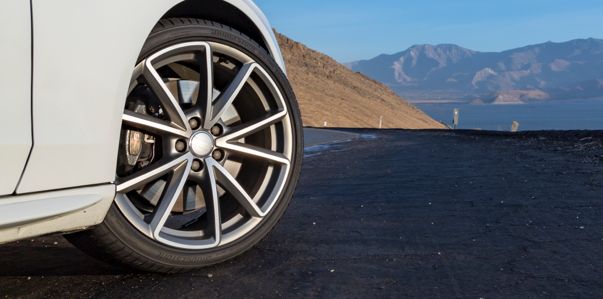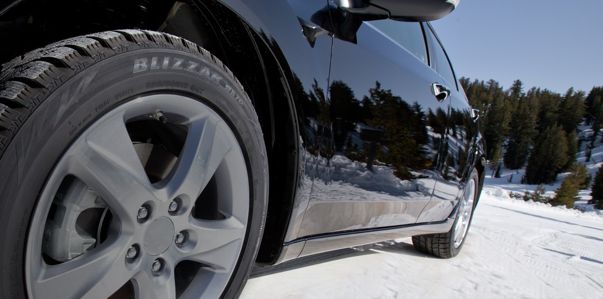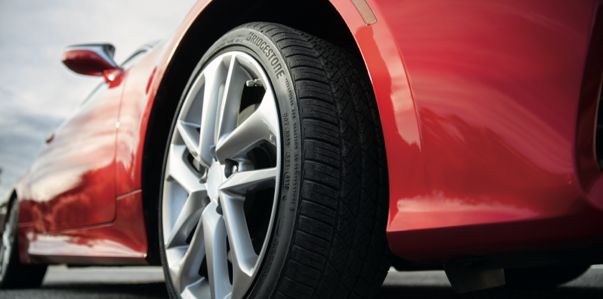
Does Low Tire Pressure Really Hurt Your Fuel Economy?
Learn how tire pressure and gas mileage are connected — from the science of rolling resistance to how many MPGs you’re leaving on the table, we cover it all.
Read More

Designed to perform well in most conditions, including wet roads and light winter, all-season tires are made for the average driver and come in sizes for all types of vehicles. Since they are designed to be suitable for a wide range of different driving conditions, all-season tires are considered middle of the road when it comes to performance but deliver longer tread life than other types of tires.
Suitable for both wet and dry roads, summer tires are made for maximum performance in warmer weather. Whether you drive a sports-oriented vehicle or a standard car, truck or SUV, summer tires are designed to grip the road and provide reliable responsiveness and braking capabilities. Drivers in areas with extreme winter weather should be prepared to switch to winter tires when the temperature starts to drop.


Winter weather can be unpredictable—but winter tires are engineered to handle anything from heavy snowfall to black ice. Available in a range of sizes for all types of vehicles, winter tires (AKA snow tires) can provide peace of mind if you live in an area with extreme weather and cold temperatures. Winter tires come with a tread design that easily digs into snow and grips ice, making them perfect for slippery winter driving conditions.
Ready to start browsing your options? Shop all winter tires.
Made for sports cars, performance tires are engineered for drivers who are looking for more out of their car than the ability to get from one place to the next. Although they fall short of other types of tires when it comes to gas mileage and tread life, performance tires can provide more control, better handling, and superior traction and grip.
Ready to start browsing your options? Shop all performance tires.

While you’re shopping for tires and comparing your options, consider your top priorities as a driver and car owner. Remember that the ideal tires for you will vary depending on your vehicle, driving habits, budget, and the road conditions you expect to encounter.
| All-Season | Summer | Winter | Performance | |
|---|---|---|---|---|
| Dry Conditions | *** | **** | ** | **** |
| Wet Conditions | *** | **** | *** | *** |
| Ice & Snow | ** | * | **** | ** |
| Fuel-efficiency | **** | *** | *** | * |
| Tread Life | **** | *** | **** | * |
| All Vehicles? | Yes | Yes | Yes | Yes |
OTHER SERVICE WARRANTY EXCLUSIONS: Replacement of anti-freeze or clamps is not included in the warranty on belts/radiator hoses. Cost of refrigerant and recharging of the air conditioning system is not included wi |
||||
Start browsing our wide range of tire types from world renowned brands and find a new set of tires that meet your needs.
When it comes to maintaining your vehicle and choosing between different types of tires, we have resources that can help. From the latest all-season, summer, performance and winter tire coupons to tips for keeping your car running newer, longer, we’re here to help.
Tell us about your tire needs and get personalized recommendations for you.

Learn how tire pressure and gas mileage are connected — from the science of rolling resistance to how many MPGs you’re leaving on the table, we cover it all.

How effective are winter tires, really? Answer common questions about winter tires and learn how they improve traction, safety, and performance on winter roads.

As winter approaches, it’s time to prepare for snowy, icy roads. This guide explains how to put snow chains on a tire, if you need snow tires or not, and more.